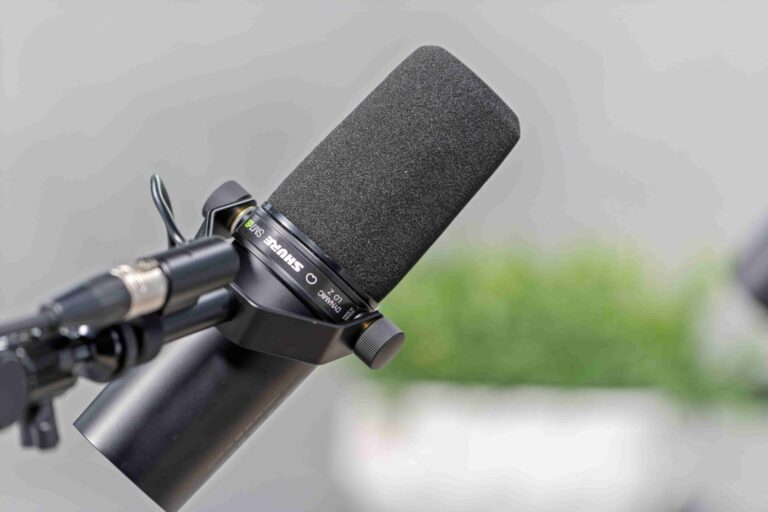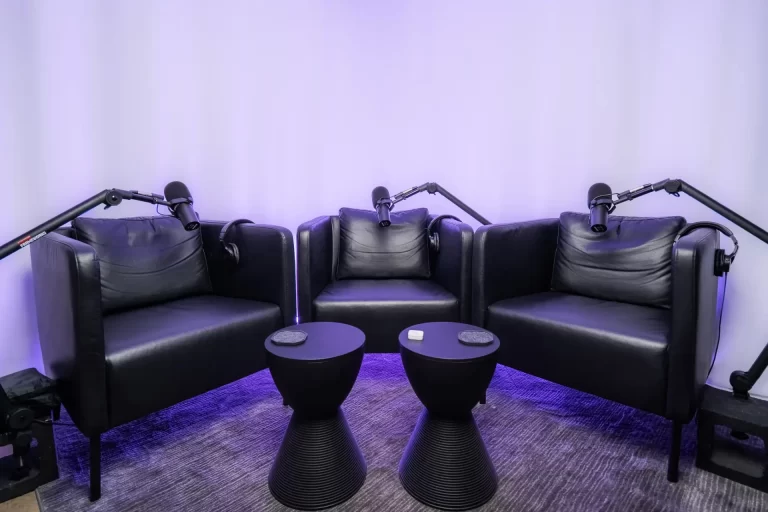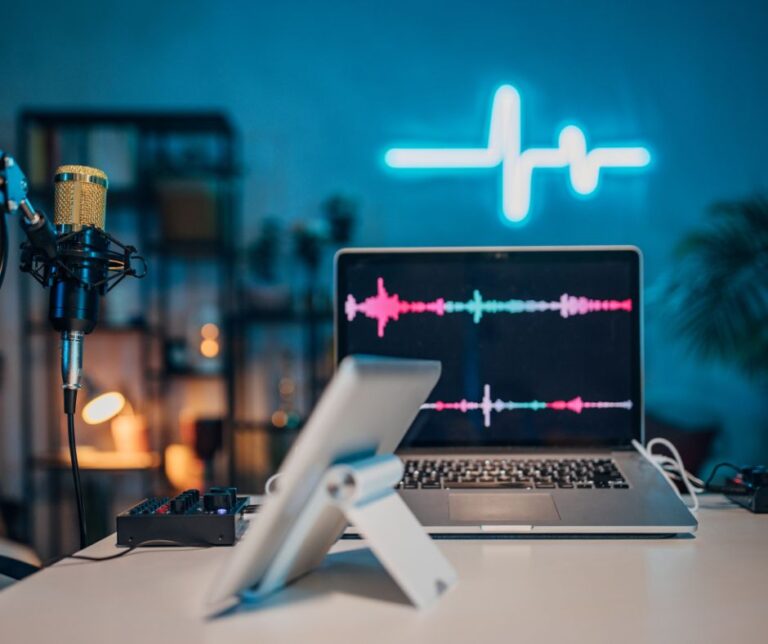The Podcasting Frontier: A Deep Dive into Startup Costs
The podcasting market has boomed in recent years. It’s amazing how much it’s grown! There are a few reasons for this: easy internet access, widespread use of smart devices, and a huge demand for on-demand content.
People love listening to podcasts anytime, anywhere – during their commute, at the gym, or while cooking dinner.
Entrepreneurs have noticed this surge in podcasting. It’s an exciting opportunity because starting a podcast doesn’t cost much but can bring in serious cash.
With a podcast, you can engage directly with your audience and reach listeners worldwide. Plus, you can monetize in different ways like sponsorships, subscriptions, and merch.
Podcasting is an incredible, cost-effective way to reach a global audience. It’s an amazing business opportunity!
If you’ve always wondered ‘how much does it cost to start a podcast,’ this guide will help you understand everything you must know before beginning. Read until the end!
Understanding Essential Costs
When it comes to understanding essential costs, here’s what you need to know:
Equipment Investments
Microphones
These are the tools you can’t go without for capturing top-notch audio.
Headphones
You’ll need these to monitor and ensure audio quality during recording and editing.
Mixer and Recording Devices
These are used to control audio levels and capture audio from multiple sources.
Software Expenses:
Editing Tools
These are the software applications you’ll use to edit and enhance your audio recordings.
Hosting Platforms
These services will provide you with storage and distribution options for your audio files.
Subscription Services
These are the monthly or annual fees you’ll pay to access premium features or content related to audio production.
Navigating Hosting Options
When it comes to hosting options, you’ve got two main choices: self-hosting or using a third-party hosting service. With self-hosting, you manage and maintain your own servers, while a third-party hosting service takes care of the infrastructure for you.
Now, let’s talk about the costs to consider. First up, bandwidth charges. This is all about the amount of data transferred between your website and its visitors. Some hosting providers charge based on the bandwidth used, so it’s important to know your website’s traffic and data transfer needs.
Next, we have storage costs. This refers to the amount of disk space needed to store your website’s files, databases, and other resources. Hosting providers may charge based on the storage you use, so it’s crucial to estimate your storage needs accurately.
Crafting a Captivating Space
When setting up a professional studio, soundproofing is a crucial factor to consider. It helps reduce external noise and ensures top-notch audio recordings.
You can try out some common soundproofing techniques like using acoustic panels, soundproof curtains, and insulation materials.
But it’s not just about sound! Creating a visually appealing and inspiring atmosphere is also key to a captivating studio space.
Think about incorporating elements like artwork, plants, and suitable lighting to enhance the ambiance. Go for decor that matches your style and personal preferences, so you can have a space that truly motivates creativity and focus.
Graphic Design and Branding
Creating a logo can have different costs depending on factors like the design complexity, designer’s experience, and project scope.
Generally, professional logo design services can range from around $500 to $5000 or even more.
If you want to enhance the visual appeal and marketability of your product or brand, investing in cover art is a great idea.
The cost of cover art can vary based on the design complexity, artist’s experience, and usage rights. It’s recommended to budget somewhere between $100 to $1000 or more for cover art investments.
Legalities and Copyright
When you’re diving into the world of podcasting, it’s super important to think about the legal stuff and copyright issues. This includes trademarking costs and music licensing.
Trademarking means officially registering your podcast name to make sure nobody else can use it. It’s a way to keep your brand unique and easily recognizable.
The expenses for trademarking can vary depending on where you are and how complicated the process is. You might have to pay filing fees, lawyer fees, and possibly more if there are any opposition proceedings.
Music licensing is all about getting the proper permissions to use copyrighted music in your podcast. It can get a bit tricky because the rights to a song are usually shared between the songwriters and the recording artists.
So, as a podcaster, you might have to get separate licenses from both parties. The fees for music licensing can vary a lot depending on how popular the song is, how long of a clip you want to use, and whether your podcast is for commercial purposes.
It’s highly recommended to get help from a legal pro to navigate this area and avoid any copyright problems.
Marketing Strategies
Here are a couple of marketing strategies you can consider:
Pre-launch Promotion
Social Media Campaigns
Get the word out by running engaging campaigns on different social media platforms.
Teaser Episodes
Create teaser episodes or content to build excitement and get your target audience involved.
Ongoing Marketing Costs
Advertising
Set aside a budget for paid advertising to reach a wider audience and promote your product or service.
SEO Investments
Invest in search engine optimization strategies to boost your online visibility and drive organic traffic to your website or platform.
These strategies can help you create buzz, engage your audience, and increase your online presence.
Monetization Tools
Sponsorship costs refer to the expenses you have when securing sponsorships for your business or brand. This could include fees paid to sponsors, costs of promotional materials, or any other expenses related to establishing and maintaining sponsorship relationships.
On the other hand, affiliate marketing investments are the resources you put into your affiliate marketing efforts. This can involve investing in affiliate programs, making commission payments to affiliates, or covering expenses associated with tracking and managing affiliate partnerships.
Outsourcing vs. DIY
When it comes to ensuring top-notch content, hiring professional editors is key. They can lend a hand with proofreading, grammar, and overall clarity.
And hey, virtual assistants are here to save the day! They can provide administrative support, manage schedules, handle emails, and take care of a bunch of tasks remotely. This way, you can focus on what really matters – your core responsibilities.
Accounting for Unexpected Expenses
Contingency budgeting is a smart financial strategy that involves setting aside some funds specifically for unexpected expenses.
By having a contingency budget, individuals or businesses can be better prepared for unforeseen circumstances like medical emergencies, car repairs, or home maintenance.
It’s like having a financial safety net that helps avoid stress or the need to rely on credit cards or loans when unexpected expenses pop up.
On the other hand, an emergency fund is a separate savings account that’s specifically meant for emergencies.
Experts recommend having at least three to six months’ worth of living expenses saved in an emergency fund. This fund can come in handy to cover unexpected costs such as job loss, medical emergencies, or major home repairs.
Having an emergency fund offers financial security and peace of mind, allowing individuals or families to navigate through tough times without significant financial strain.
Time Investments
This is the time set aside for brainstorming ideas, conducting research, and creating original content. Information is gathered, the structure is outlined, and engaging and informative material is created.
After the content creation phase, it is time for reviewing and refining the content. Proofreading, editing for clarity and coherence, and enhancing the overall quality of the content using post-production techniques are done.
Launching Strategies
When you soft launch a product or service, there are costs involved in market research, product development, and initial marketing efforts. It’s a phase where you can test and gather feedback before going all-in.
On the other hand, grand launch events are big and exciting! They’re highly orchestrated to create buzz around a new product or service. Think media coverage, influencers, and targeted marketing campaigns. It’s all about maximizing visibility and generating interest.
Analyzing Return on Investment (ROI)
Tracking metrics is crucial for analyzing return on investment (ROI). These tools give businesses a way to measure and monitor key performance indicators (KPIs) and see how their investments are performing.
By keeping an eye on metrics like revenue, customer acquisition costs, conversion rates, and customer lifetime value, businesses get insights into how well their strategies are working and can make smarter decisions to optimize their ROI.
When it comes to analyzing ROI, it’s important to evaluate success indicators. These indicators can vary depending on a business’s specific goals and objectives.
They might include metrics like revenue growth, profit margins, market share, customer satisfaction, and brand recognition.
Evaluating these indicators helps businesses understand the overall impact and effectiveness of their investments and figure out if they’re achieving their desired outcomes.
Summary
So, to sum up, getting into the world of podcasting is super exciting and has tons of potential. But it’s important to keep in mind that there are costs involved.
You might need to invest in some top-notch recording equipment, editing software, and branding to start with. And don’t forget about ongoing expenses like hosting, advertising, and even travel.
But hey, these expenses are actually investments in your brand and your audience. When you launch a podcast, it’s crucial to not only understand these costs but also budget for them properly. And remember, it’s not just about money.
You’ll also need to think about the time you’ll be putting into it, whether you’ll need some professional help with editing or graphic design, and most importantly, how to create high-quality content that’ll attract and keep your audience engaged.
The podcasting world can be challenging, but with some careful planning and smart investments, it can turn into a truly rewarding adventure.





